Birmingham: Nine real facts about young UK city
- Published
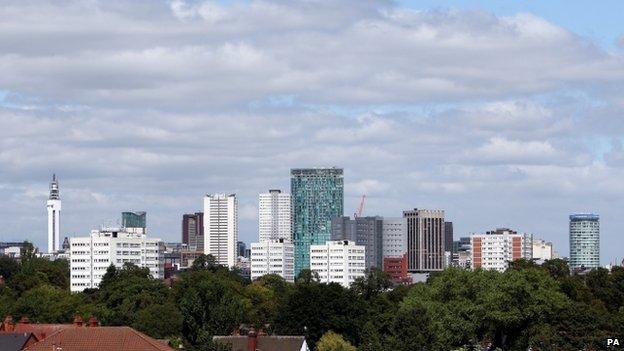
What are the facts about Birmingham?
A terrorism commentator has apologised for suggesting Birmingham was a "Muslim-only city" where non-Muslims dare not venture during an interview on US broadcaster Fox News.
The claim has baffled many of those who live in Birmingham and led to a series of satirical tweets under the Twitter hashtag #FoxNewsFacts.
So what are the facts about the city that likes to position itself as England's second metropolis?

A young, multi-cultural city
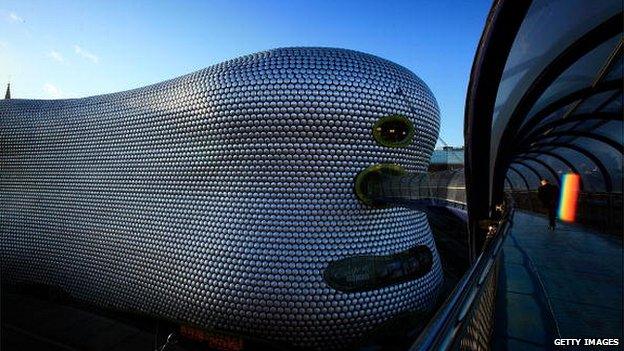
According to the city council, external, more than one million people live in Birmingham.
The council also says the city is ethnically mixed - around 42% of residents are from an ethnic group other than white.
It is religiously diverse, with 46.1% of Birmingham residents saying they are Christian, 21.8% Muslim and 19.3% had no religion.
The council also says Birmingham's population is relatively youthful - 45.7% of Birmingham residents are under 30, compared with 36.8% for England.
In contrast 12.9% of residents are over 65, compared with 16.9% nationally.

Was Thomas a Brummie?

Did you know the Reverend Wilbert Awdry wrote some of the Thomas the Tank Engine books at St. Nicholas' Church in Kings Norton, where he worked as a curate?
He grew up at Box in Wiltshire, and is supposed to have got the idea of engines talking ("I CAN do it. I WILL do it....") from the sound as they puffed up the incline on the Great Western line nearby.
He worked in Birmingham from 1940 to 1946.

A chocolate heaven
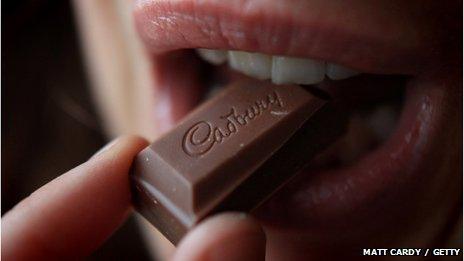
Within Birmingham lies the "village" of Bournville, which was built by the Cadbury family for the chocolate factory's workers.
It contains no pubs because the family were Quakers.
The company was founded in 1824 by John Cadbury and, by 1930, had become the 24th largest manufacturing firm in Britain.
Rita McLean, former head of museums and heritage at Birmingham Museums, said: "The Cadbury family made a fortune from chocolate., external
"Beatrice Cadbury inherited a sizeable amount. But in the 1920s, she turned her back on the opulent lifestyle and gave her shares to the workers at the Bournville factory."

City of sleuths

The creator of Sherlock Holmes, Sir Arthur Conan Doyle lived and worked in Aston between 1878 and 1881.
Historian Ben Waddington said: "Birmingham may not be the first city you associate with Sir Arthur Conan Doyle or his creation Sherlock Holmes.
"But Conan Doyle was working as a chemist in the city while studying at the University of Edinburgh.
"In the short story, The Adventure of the Stockbroker's Clerk, Sherlock Holmes and Dr Watson come to Birmingham to investigate an office at 126B Corporation Street.
"Conan Doyle's earliest mysteries were written while he lived in the city and a lot of Birmingham names crop up in the stories, including Baskerville."

A point to prove?
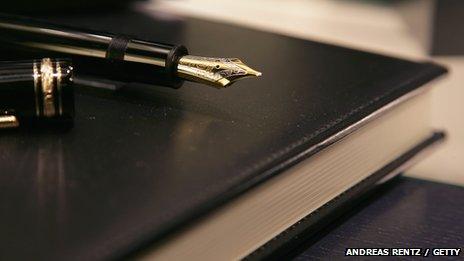
According to the educational film More Canals Than Venice, in 1875 three quarters of the world wrote using pen nibs made in Birmingham.
During the industry's heyday, there were more than 100 companies manufacturing pens in the city.
However, by the end of the 19th Century, the number of manufacturers had declined to just 12.
And in the following century, Laslo Biro's ballpoint pen invention, in 1938, sounded the death knell for the mass production of traditional pen nibs.

Motor city
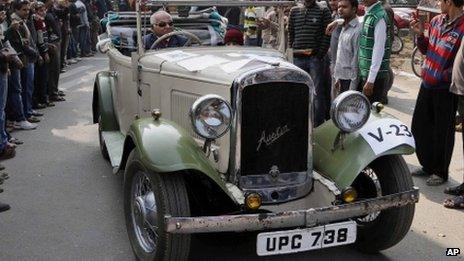
One of the UK's first petrol-driven cars was built in Birmingham by engineer Frederick Lanchester while he was working in the city, said Mr Rainbow.
Herbert Austin famously founded a factory in the south west of the city at Longbridge.
It made several classic models, external, including the Austin Seven and the Mini.
By the 1950s, the site employed more than 20,000 people and produced nearly 200,000 vehicles a year.

Plastic fantastic

Alexander Parkes was born in Birmingham in 1813.
Parkes was a chemist and inventor who discovered several new processes, such as cold vulcanisation, a means of waterproofing fabrics.
In 1856, he made a flexible material called Parkesine, which is widely viewed as the first version of plastic.

A city of romance
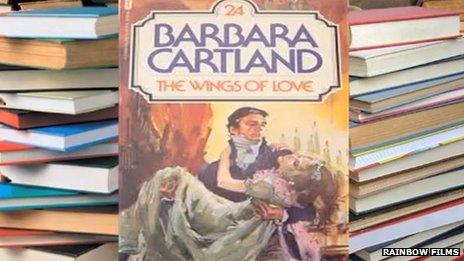
Prolific romance novelist Dame Barbara Cartland was born in Edgbaston in 1901.
She died at the age of 98, having written more than 700 books, including titles such as A Dangerous Disguise and The Enchanted Moment.
Her Who's Who entry claims she achieved sales of 750 million, although some dispute the figure.
Mr Rainbow said she holds the Guinness World Record for the most novels written in a single year.
The author was the step-grandmother of Diana, Princess of Wales.

Steaming ahead
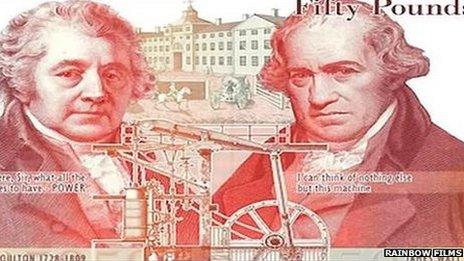
Famous industrialist Matthew Boulton was born in Birmingham in 1728 and went on to open the Soho Manufactory, which many see as the first factory of its kind.
Oliver Buckley, curator manager of Soho House, Boulton's former home, said: "Matthew Boulton was a Birmingham boy, who built the Soho Manufactory in 1765.
"It was a massive factory. Nobody had thought to manufacture on that scale before."
Many of Boulton's achievements were in partnership with James Watt.
"Their steam partnership was one of the great powerhouses of the industrial revolution," added Mr Buckley.
- Published12 January 2015

- Published20 July 2013